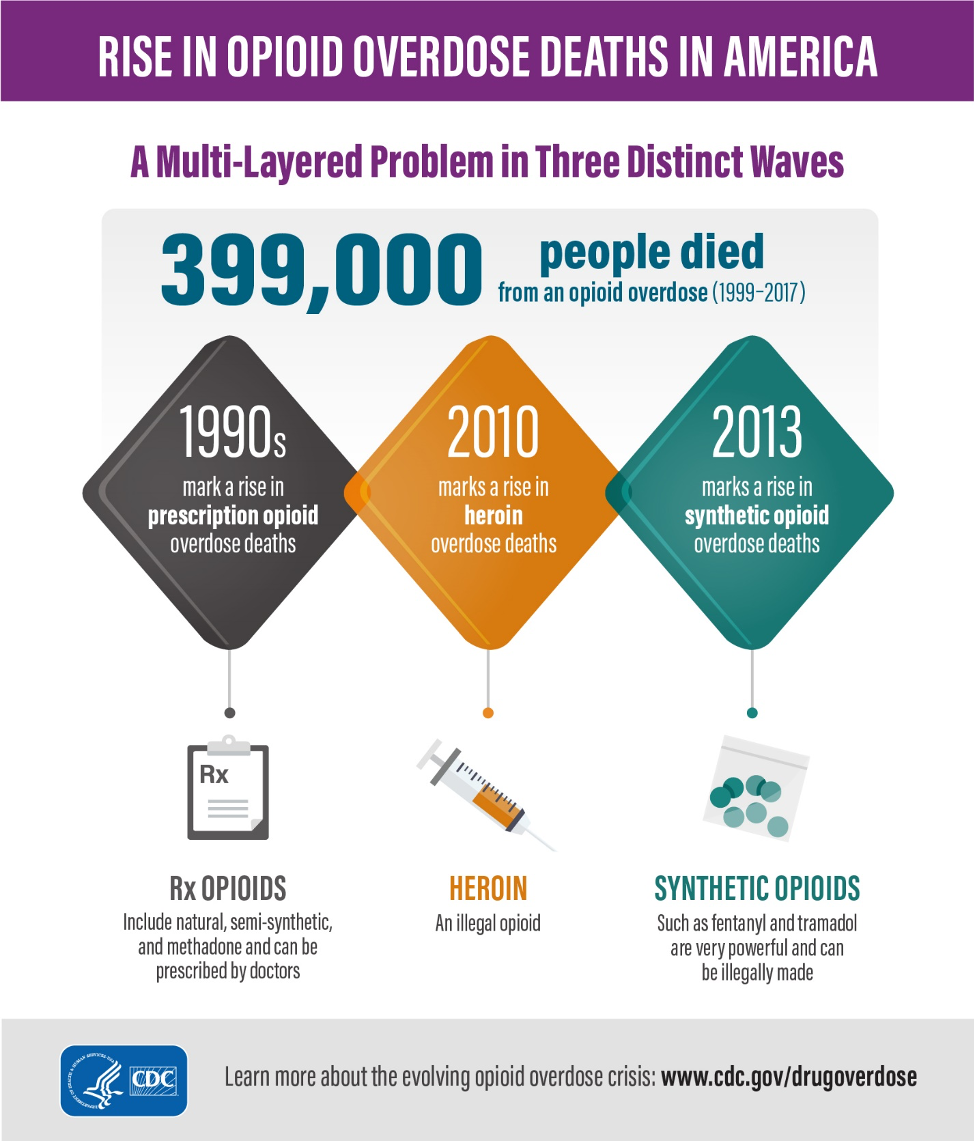As part of his proposed 2021 government budget, President Donald Trump plans on increasing spending aimed at combatting the opioid epidemic. Hospitals across the country have already implemented training to help prevent overdoses. Staten Island University Hospital, for instance, will provide free training in the coming months.
In 2017, more than 47,000 people in the United States overdosed on opioids, with 35% of those deaths involving prescription opioids, according to the Centers for Disease Control. About 6,000 people died of opioid overdoses in Florida and New York combined.
In New York City, hospitals have expanded the availability of overdose prevention programs. One method includes providing free Narcan kits — overdose rescue kits with Naloxone, a substance used to reverse opioid overdoses as they happen.
Juliene Haggerty, an opioid treatment program counselor at Staten Island University Hospital, provides training to people and organizations interested in learning how to prevent these deaths.
“We’ve trained well over 1,000 people in the last two years, and constantly get reports of successful overdose reversals,” said Haggerty. Narcan kit owners can submit anonymous reports when they use the kit to counter an overdose.
Haggerty and other counselors provide essential training and the Narcan kits, which can cost up to $140 and include two 4 mL doses.
In Trump’s proposed budget, the Department of Health and Human Services would receive $5 billion to “combat the opioid epidemic, making critical investments in research, surveillance, prevention, treatment, access to overdose reversal drugs, recovery support services and research.” The funding would include $1.6 billion for State Opioid Response grants, which Haggerty and others could use to provide free kits to the public. Narcan kits given away to the public through efforts like Haggerty’s are paid for by the New York State Department of Health.
According to the National Survey of Drug Use and Health, an estimated 10.3 million people ages 12 and older misused opioids in 2018, including 9.9 million who misused prescription pain relievers and 808,000 heroin users. Haggerty said although young adults are typically the victims of opioid addictions, older adults have also become addicted through the misuse of pain medication prescribed to them by doctors.
“The hospital started this program five years ago as a result of the drastic increase of opioid abuse and overdose,” said Haggerty. “Fentanyl started being illegally manufactured, and people were combining them with painkillers and heroin and all sorts of other opioids.”
Florida introduced a statewide opioid overdose prevention program in 2016. A prevention coordinator “conducts overdose recognition and response trainings to providers interested in participating in the program.” Non-profit organizations can distribute free Narcan kits provided by the department, which buys them for $75 each.
As of December 2018, more than 90 trainings on overdose recognition and naloxone use have reached an estimated 3,100 individuals in the state.


































